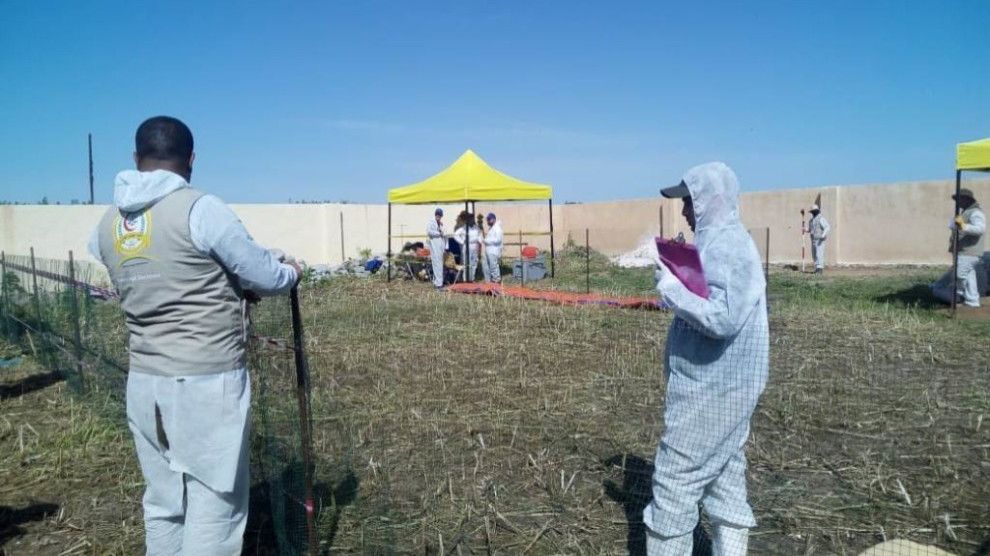141 people exhumed from mass graves in Shengal identified
The opening of mass graves in the village of Kocho started on March 15. Works on mass graves had been suspended during the Ramadan moth.
The opening of mass graves in the village of Kocho started on March 15. Works on mass graves had been suspended during the Ramadan moth.

ISIS terrorists launched a genocidal aggression against the land of Kurdish Yazidi ethnic community, Shengal town in southern Kurdistan, on August 3, 2014. In the face of the attack which targeted Shengal town center and surrounding territory, HPG and YPG forces managed to save tens of thousands of people as result of their intervention.
Thousands of Yazidis were massacred and buried in mass graves during the first wave of attacks. Thousands of women and girls were abducted and degraded into sex slaves. It has been years since the Yazidi massacre, but the fate of numerous Yazidis is still not known.
Many mass graves in Shengal region have been opened recently and efforts were intensified for the identification of the victims in accordance with the DNA samples taken from the remains removed from the located and excavated mass graves.
The opening of mass graves in the village of Kocho started on March 15. Works on mass graves had been suspended during the Ramadan moth.
Remains of 141 people exhumed from the mass graves in Kocho had been sent to the Forensic Medicine Institute in Baghdad. The identification of the bodies has been completed following the examinations made here.
Director of Baghdad’s Forensic Medicine Institute, Zêde Al Yusif spoke to Frans Press and talked about difficulties in the identification process; “We have taken 286 blood samples from the families in Shengal. The biggest difficulty we face is the fact that only one person has survived from the many Yazidi families, all other family members are lost. Sometimes we can find only one person from one family.”